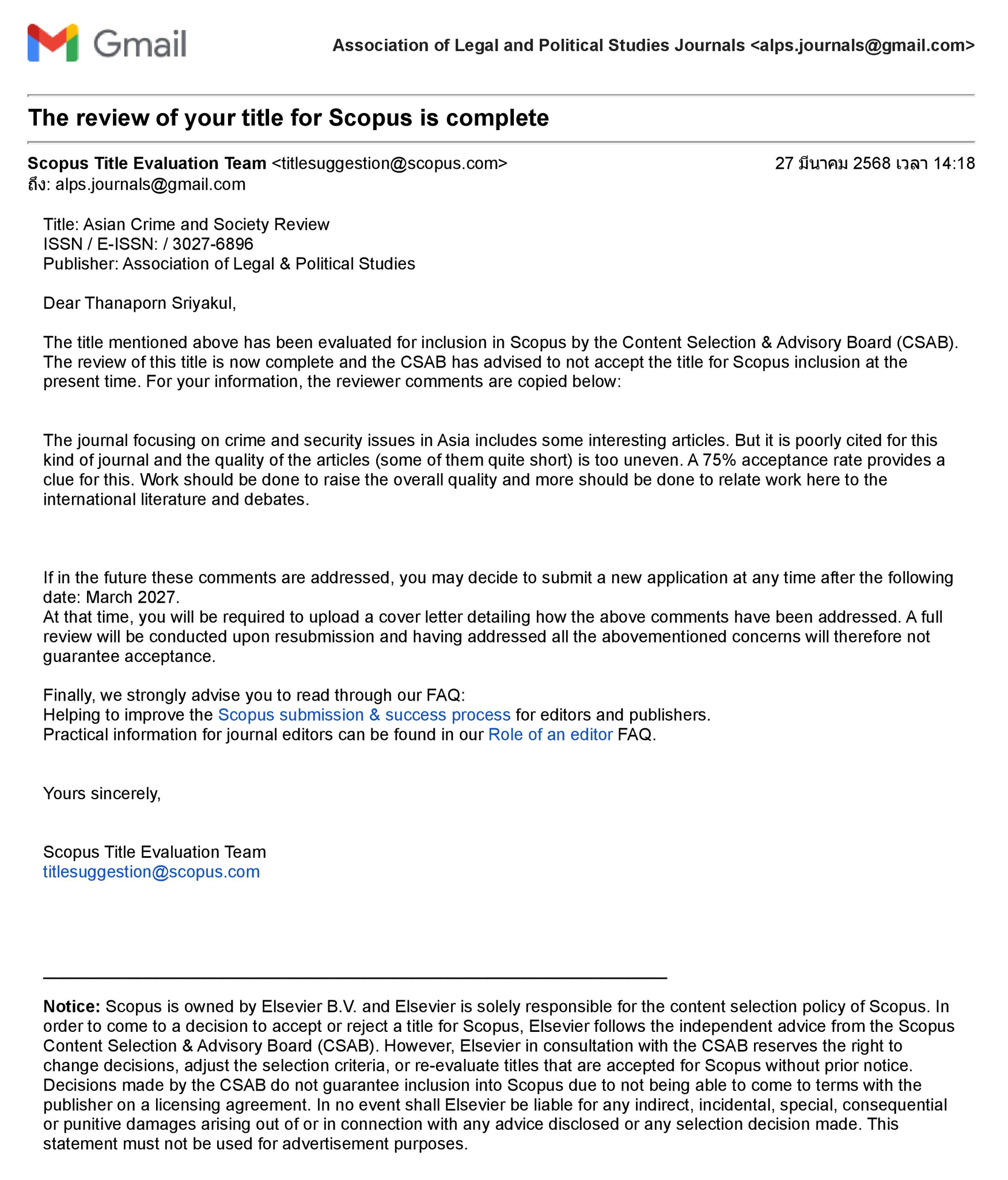Comprehensive Update to Our Publication Ethics and Malpractice Statement
The editorial board of the Asian Crime and Society Review (ACSR) is pleased to announce a significant and comprehensive update to our Publication Ethics and Malpractice Statement, effective immediately.
As a leading academic platform, we continually evaluate and elevate our standards to foster a rigorous, transparent, and trustworthy scholarly environment. This recent revision was driven by five primary objectives:
- Developing In-House, Tailored Ethical Guidelines: In direct alignment with the constructive recommendations from the Web of Science (WoS) Editorial Team, we have meticulously restructured our ethical guidelines. The WoS rightly emphasizes that "ethical guidelines should be owned by the journal/publisher in question (i.e., developed in-house) to demonstrate an understanding and ownership by the journal of its policies and processes." By synthesizing the core practices of the Committee on Publication Ethics (COPE) with our unique operational context, we have established a framework that authentically reflects our journal’s specific identity and accountability.
- Enhancing Journal Processes and Transparency: This updated statement formally integrates our latest procedural enhancements. It clearly outlines the operational mechanisms of our transparent Open Peer Review model through the Open Journal Systems (OJS). Additionally, it introduces the mandatory Author Self-Certification Form, which will now be required during the manuscript revision stage to guarantee uncompromising adherence to our formatting and ethical standards.
- Mandating Explicit Disclosures for Human and Animal Research: Commencing officially with the 2026 publication cycle, we are instituting a strict, mandatory requirement for all published articles to include explicit declarations regarding human and animal research subjects. Authors must rigorously adhere to international frameworks, such as the World Medical Association's Declaration of Helsinki and the ARRIVE guidelines. Moving forward, every manuscript must clearly document relevant ethical committee approvals, Institutional Review Board (IRB) numbers, and informed consent procedures, or explicitly state if such ethical clearances are not applicable to their specific study design.
- Addressing Rapid Technological Advancements: We recognize the profound and rapid advancements in contemporary technology, particularly the emergence of Generative Artificial Intelligence (AI) and Large Language Models (LLMs). To proactively address the complex ethical implications these tools pose to academic publishing, we have introduced a dedicated, robust policy section governing the permissible uses of AI, ensuring that human accountability and research integrity remain paramount.
- Aligning with Database Indexing Standards: To ensure our operations meet the highest echelons of global publishing, this update integrates the rigorous ethical criteria of leading academic databases. As a specific operational requirement, our ethical oversight strictly complies with the standards of the Thai Journal Citation Index (TCI), the national database where ACSR is currently indexed. Furthermore, in direct alignment with our strategic goals for future international indexing, we proactively adopt the comprehensive evaluation frameworks and guidelines of major international databases, notably Elsevier's Scopus and the Web of Science (WoS), to systematically manage and resolve publication ethics issues.
We strongly encourage all prospective authors, dedicated reviewers, and editorial members to thoroughly review the updated Publication Ethics and Malpractice Statement (https://so02.tci-thaijo.org/index.php/IJCLSI/Ethics) before engaging in any submission or peer-review activities.
We thank you for your continued support and commitment to maintaining the highest standards of scientific excellence at ACSR.
The Editorial Team
Read more about Comprehensive Update to Our Publication Ethics and Malpractice Statement












.png)


